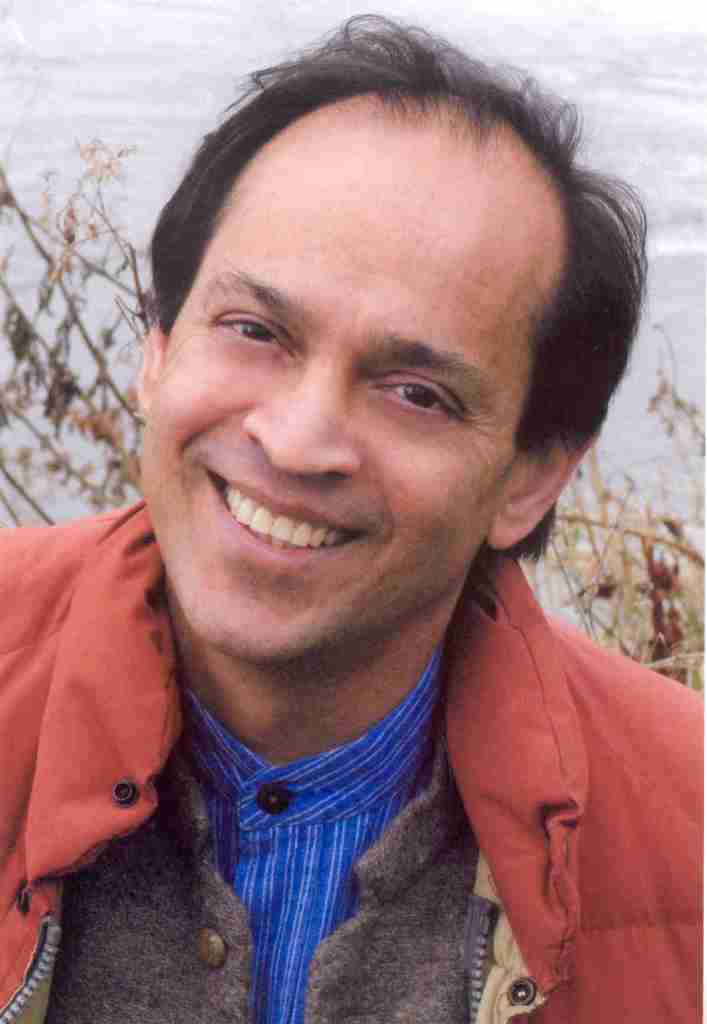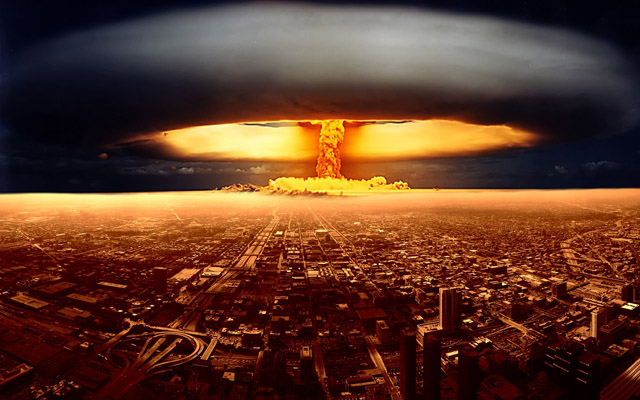Critical Analysis A Doctor’s Journal Entry for August 6, 1945:
In this poem, the poet describes the scene after the atomic explosion of Hiroshima very vividly. The fact that it is written in the first person makes the account seem both immediate and authentic. What is most significant is how the people of the town are so much in shock that they cannot find any words to say. They are neither screaming in anger nor crying in despair. They have not recovered enough to do so. Since this was the first time in human history that nuclear weapons were used, the residents of Hiroshima had no previous experience of it. They didn’t know what was happening to them, how to stop it, or even how to protect themselves. There were so helpless that they had lost even their sense of self-dignity. That is why they were no longer ashamed of being naked. They only trooped to the hospital hoping that the doctors or nurses there would have some answer to the devastation they had seen before their eyes. This poem shows how only the common people suffer when such historical events take place. It was not the Japanese administration that suffered because of the atomic bombs but the common people who had no knowledge of such decisions on the administration’s part who died or were injured beyond repair. The poet captures their helplessness so effectively that readers can sympathize with their suffering very easily.
Poetic Devices in A Doctor’s Journal Entry for August 6, 1945:
Rhyme scheme:
This poem consists of 30 rhyming couplets and a triplet. The triplet occurs in lines 29, 30 and 31, each of which rhymes with the other two.
Rhetorical devices:
Personification:
This rhetorical device is used to bestow human qualities on something that is not human. In this poem, the poet uses the device of personification with respect to thirst in line 33. He imagines thirst to be a figure with the human ability to grab his throat with its hand. He also uses this device with respect to his strength in lines 34-35. He imagines his strength to be a dead man who suddenly comes back to life.
Metaphor:
This rhetorical device is used when a covert comparison is made between two different things or ideas. In this poem, the poet uses the device of metaphor in line 47 when he compares some men in the aftermath of the nuclear explosion with scarecrows, who have unruly hair and too-skinny limbs.
Irony:
This is a rhetorical device in which what appears, on the surface, to be the case, differs radically from what is actually the case. In this poem, the poet uses the device of irony in line 52 when he calls the group of men walking to the hospital a ‘parade’. Usually, a parade is taken out on happy occasions, but this situation is most distressful.
Annotation in A Doctor’s Journal Entry for August 6, 1945:
Please note: N= noun, V=verb, Adj=Adjective, Adv=Adverb, P=Preposition
Sprawling (V): Present participle form of the word “sprawl”, that is, to sit, lie, or fall with one’s arms and legs spread out in an ungainly way
Clad (Adj): Clothed
Magnesium (N): The chemical element of atomic number 12, a silver-white metal of the alkaline earth series. It is used to make strong lightweight alloys and is also used in flash bulbs and pyrotechnics, as it burns with a brilliant white flame
Flares (N): Plural form of the word “flare”, that is, a sudden brief burst of bright flame or light
Drawers (N): Knickers or underpants
Undershirt (N): An undergarment worn under a shirt; a vest
Jutted (V): Past tense of the word “jut”, that is, to extend out, over, or beyond the main body or line of something
Mangled (V): Past tense of the word “mangle”, that is, to destroy or severely damage by tearing or crushing
Dislodged (V): Past tense of the word “dislodge”, that is, to knock or force out of position
San (N): (In Japan) an honorific title added to a personal or family name as a mark of politeness
Gushed (V): Past tense of the word “gush”, that is, (of a liquid) to flow out of something in a rapid and plentiful stream
Artery (N): Any of the muscular-walled tubes forming part of the circulation system by which blood (mainly that which has been oxygenated) is conveyed from the heart to all parts of the body
Swayed (V): Past tense of the word “sway”, that is, to move or cause to move slowly or rhythmically backward and forwards or from side to side
Toppled (V): Past tense of the word “topple”, that is, to overbalance or cause to overbalance and fall
Dawned (V): Past tense of the word “dawn”, that is, to become evident to the mind; be perceived or understood
Aid (N): Help, typically of a practical nature
Seized (V): Past tense of the word “seize”, that is, to take hold of suddenly and forcibly
Short (Adj): Not having enough of (something); lacking or deficient in
Revive (V): Regain life, consciousness, or strength
Stiff (Adj): Not easily bent or changed in shape; rigid
Rebelled (V): Past tense of the word “rebel”, that is, to show or feel repugnance for or resistance to something
Distress (N): Extreme anxiety, sorrow, or pain
Dreadful (Adj): Causing or involving great suffering, fear, or unhappiness; extremely bad or serious
Crept (V): Past tense of the word “creep”, that is, to move slowly and carefully in order to avoid being heard or noticed
Shadowy (Adj): Of uncertain identity or nature
Scarecrows (N): Plural form of the word “scarecrow”, that is, an object made to resemble a human figure, set up to scare birds away from a field where crops are growing
Dangling (Adj): Hanging or swinging loosely
Friction (N): The resistance that one surface or object encounters when moving over another
Chafe (V): (With reference to a part of the body) make or become sore by rubbing against something
Shuffled (V): Past tense of the word “shuffle”, that is, to walk by dragging one’s feet along or without lifting them fully from the ground
Parade (N): A series of people or things appearing or being displayed one after the other
Dismayed (V): Past tense of the word “dismay”, that is, to cause (someone) to feel concern and distress
Stripped (V): Past participle form of the word “strip”, that is, to remove all coverings from
Marred (V): Past participle form of the word “mar”, that is, to impair the quality or appearance of; spoil
Anguish (N): Severe mental or physical pain or suffering
Central Idea of A Doctor’s Journal Entry for August 6, 1945:
The narrator, a Japanese doctor, describes the moments after the atomic bombing of Hiroshima – how all the buildings were destroyed, how men’s bodies had been ripped apart, how the survivors were all naked and marching towards the hospital, and how none of them were speaking a word.
Themes of A Doctor’s Journal Entry for August 6, 1945:
Effect of war on common people: 1945 marked the sixth and final year of the Second World War. By August, Germany had already surrendered to the Allies, but Japan refused to do so. This was the official decision of the Japanese administration, but it did not necessarily reflect the attitude of the Japanese public at large. As a result of Japan refusing to surrender, the United States dropped atomic bombs on Hiroshima and Nagasaki. It was largely civilians who were killed or maimed for life because of the bombings, even though Hiroshima had a large military garrison. In any case, it was not the decision makers who suffered, but the common people.
Immediate response to nuclear bombs: In this poem, Seth accurately describes the reaction of the citizens of Hiroshima to the nuclear bomb. This was the first and last time in history that nuclear weapons had been used. Hence, the citizens had no previous experience of it. They couldn’t figure out what it was that had happened to them on that fateful day. They were shell shocked, and could not speak. This silence is captured very well by Seth.
The Tone of A Doctor’s Journal Entry for August 6, 1945:
The tone of this poem is pessimistic, as expected. The narrator is scared, not just for himself or his wife, but for all the people in his vicinity in general. He describes how people are unable to react in any manner to the happenings. Anger is a sign of non-acceptance of wrongdoings, but the silence of the victims of the Hiroshima bombing shows that they are passively accepting whatever is happening to them.
Conclusion:
In this poem, Seth accurately captures the massive destruction of property and loss of lives caused by the Hiroshima bombing. However, his point is not that nuclear weapons are bad, but that all wars are bad. They affect only common people and not the administration that carries on wars. Hence, wars should be stopped altogether.
Some online learning platforms provide certifications, while others are designed to simply grow your skills in your personal and professional life. Including Masterclass and Coursera, here are our recommendations for the best online learning platforms you can sign up for today.
The 7 Best Online Learning Platforms of 2022
- Best Overall: Coursera
- Best for Niche Topics: Udemy
- Best for Creative Fields: Skillshare
- Best for Celebrity Lessons: MasterClass
- Best for STEM: EdX
- Best for Career Building: Udacity
- Best for Data Learning: Pluralsight











